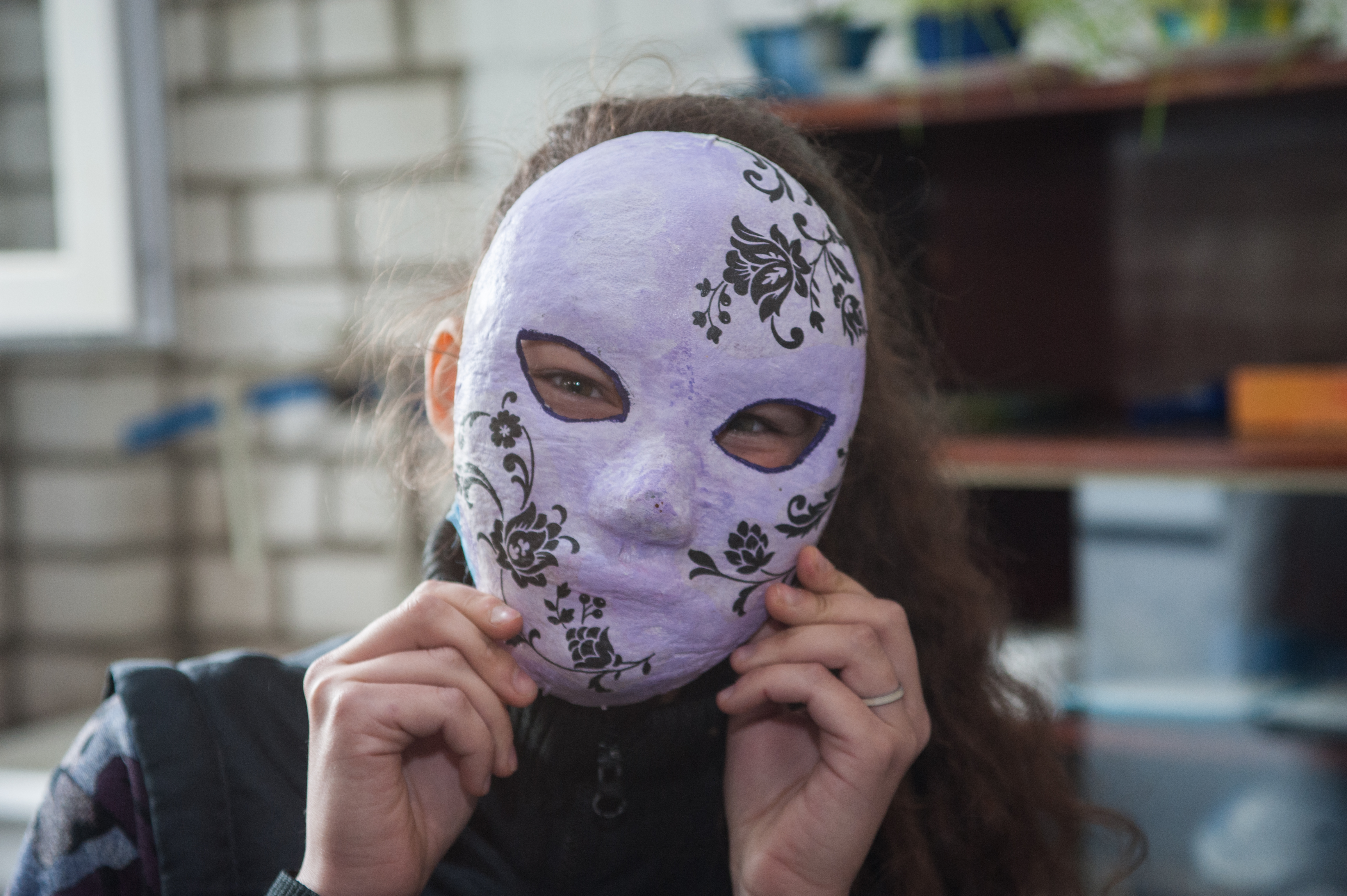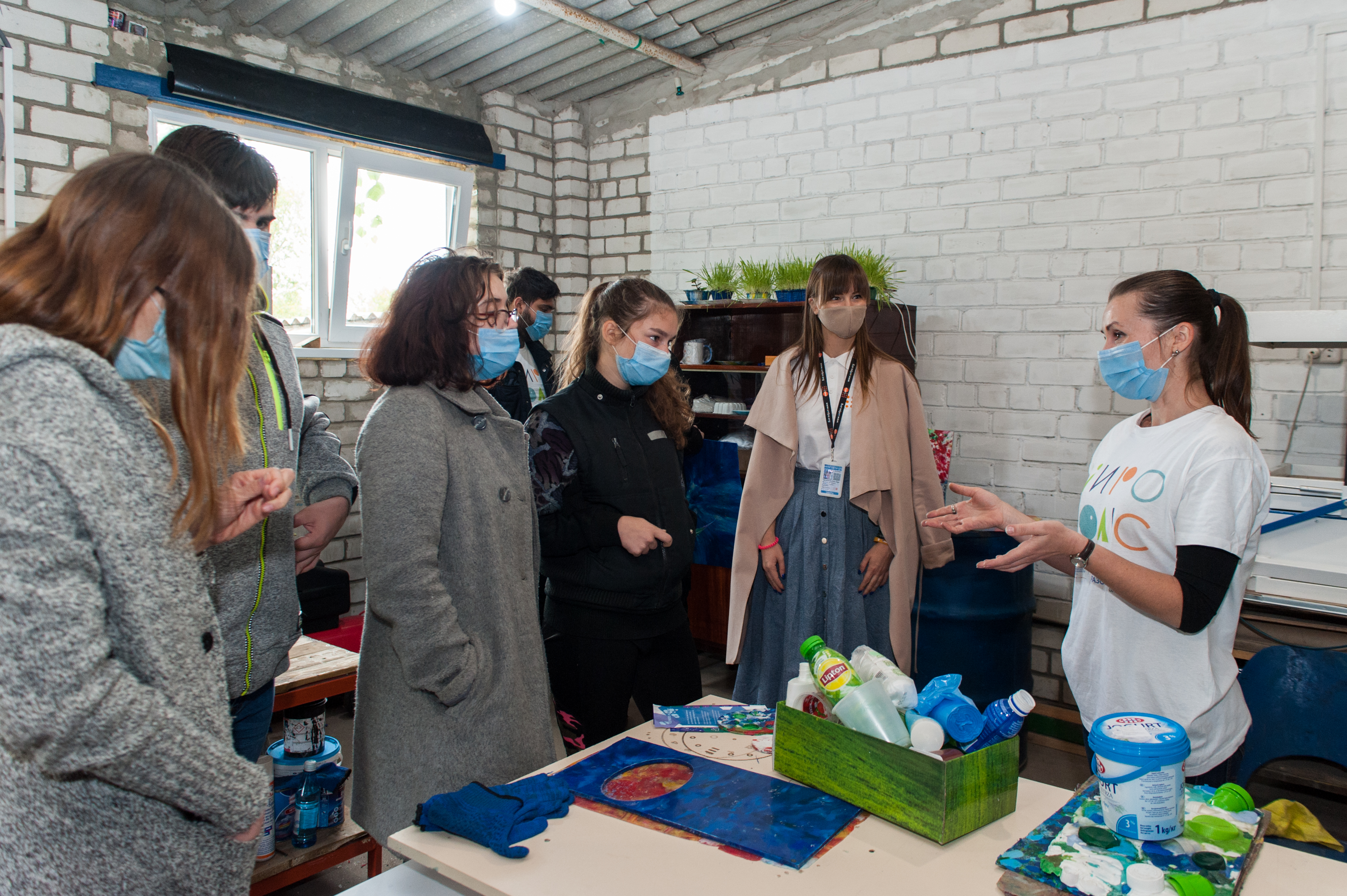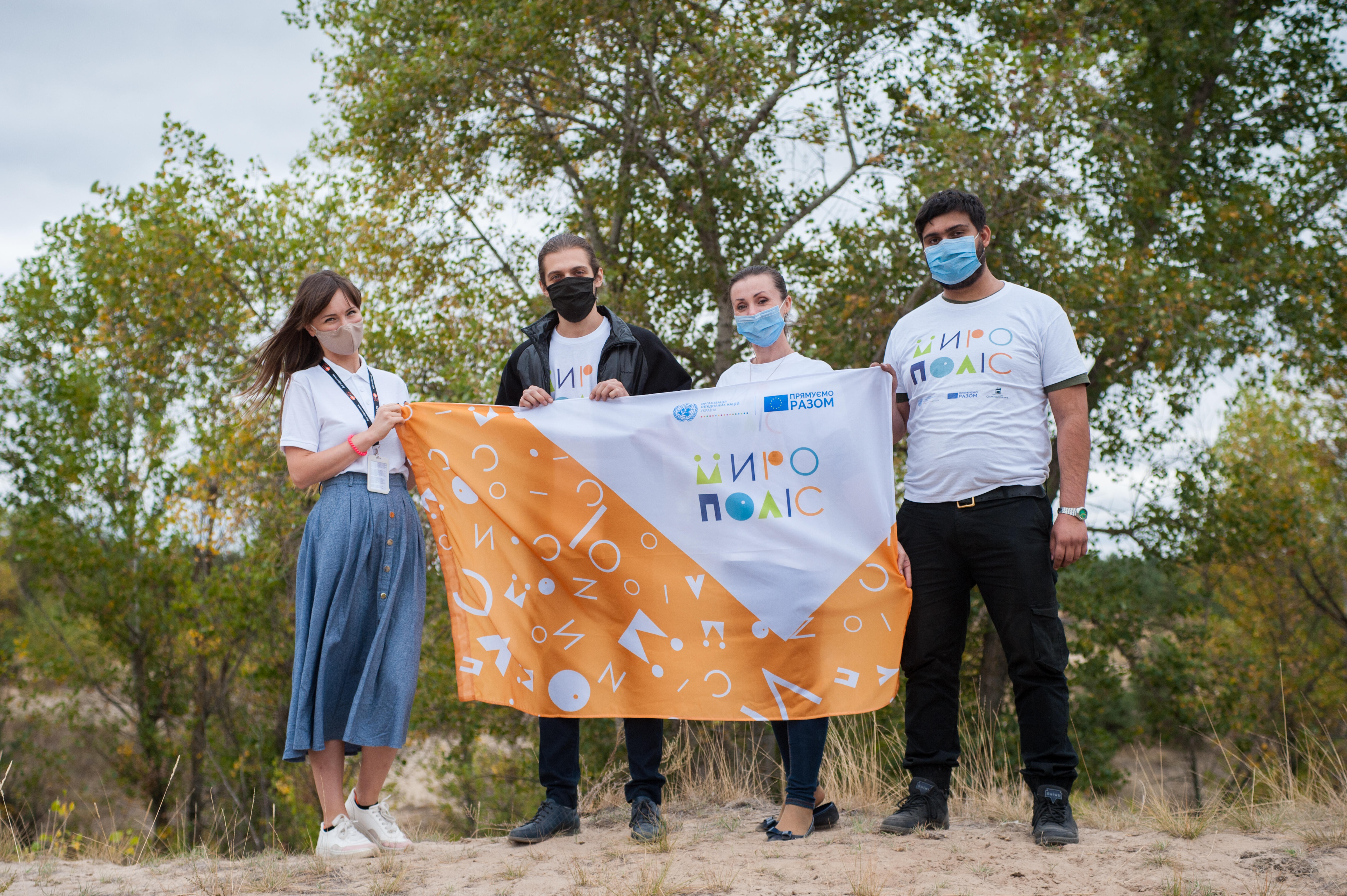Discussion of topics that are important for the new generation, including environmental protection and sustainable development, was one of the objectives of the last year’s Forum. This year, Myropolis 2020 in the communities continues to raise the issue of responsible attitude of young people to nature, conscious consumption and disposal of waste, in particular, of the well-known plastic caps.
During September, the team of the GarageCraft Manufactory NGO was actively conducting a series of trainings, during which the youth of the Luhansk Oblast learned about the history of emergence and use of plastics, sorting plastic waste, and most importantly saw with their own eyes how with the help of modern equipment things that are called garbage turn into ones used in everyday life - watches, palettes, board games, flower pots.

“After each meeting with young people, our manufactory seems to come to life”, the team of the GarageCraft Manufactory which conducts the Myropolis - Transformation of Plastics in Severodonetsk shared positive impressions. “Lots of impressions! And all are the best. The youth of Severodonetsk is mega-positive! Through Myropolis, we gained valuable experience and new acquaintances! All this inspires and motivates to move on!”

The Myropolis in Communities Project is implemented within the framework of the UN Recovery and Peacebuilding Programme #UNRPP, which is implemented by four UN Agencies: the United Nations Development Programme (UNDP), the United Nations Entity for Gender Equality and the Empowerment of Women (UN Women), the United Nations Population Fund (UNFPA) and the Food and Agriculture Organization of the United Nations (FAO). The programme is supported by thirteen international partners: the European Union (EU), the European Investment Bank (EIB), the U.S. Embassy in Ukraine, and the Governments of the United Kingdom, Denmark, Canada, the Netherlands, Germany, Norway, Poland, Switzerland, Sweden and Japan.


